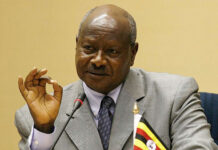“Today, the World Bank has declared Tanzania Middle Income Country. In this regard, I congratulate all my compatriots for this historic achievement. We had envisaged to achieve this status by 2025 but,with strong determination, this has been possible in 2020. GOD BLESS TANZANIA,“ John Magufuli, President of Tanzania (July 1,2020).
Tanzania, was Wednesday, July 1, 2020, declared a middle income country by the World Bank; a feat achieved five years ahead of schedule.
Tanzania enters the bracket of middle income countries with a GNI per capita between US$1,006 and US$3,955 per World Bank 2018 classification.
In 2019, the country recorded a constant growth of 7 per cent making it one of the fastest growing economies in Africa.
Presenting the state of the economy in Parliament in 2018, the Minister for Finance and Planning, Dr Phillip Mpango said the per capita income in US dollars term reached 1,021 US dollars in 2017 up from 958 US dollars in 2016.
“Tanzania has continued to achieve a sustained high growth rate of the economy, with signs of economic transformation emerging. These positive developments have, however, not facilitated substantial poverty reduction, creation of quality jobs and productivity increase. These manifestations are inconsistent with the national development aspirations articulated in the Tanzania Development Vision 2025 of transforming the economy into a middle income and semi-industrialised state by 2025.
“As such, concerted efforts are needed to transform the economy, commensurate with the envisaged development aspirations; a task we have to fulfil in less than 10 years. The Second Five Year Development Plan whose theme is: “Nurturing Industrialisation for Economic Transformation and Human Development” is intended to rally and align society’s efforts towards realisation of the development aspirations. This will only be achieved through, among others, fostering economic growth, reducing economic vulnerability, enhancing forward and backward linkages between and within sectors, ensuring positive spill-over effects of skills development and technology innovation, creation of decent jobs and ensuring environmental sustainability, Mpango said in a document titled: NATIONAL FIVE YEAR DEVELOPMENT PLAN 2016/17 – 2020/21.
In 2019, building on the World Bank’s Human Capital Index (HCI) and human capital wealth data, the Tanzania Economic Update: Human Capital, The Real Wealth of Nations, suggested ways the country could invest in its people for faster poverty reduction. The HCI was released as part of the Bank’s Human Capital Project, which the Tanzanian government is part of. Estimates of poverty based on the 2016/17 Household Budget Survey suggest that while the poverty rate was reduced slightly since 2012, the absolute number of people living in poverty has increased.
Going down history lane, we will understand that Tanzania is one of the countries in sub-Saharan Africa that has sustained high levels of growth. The growth has been about 7 percent in recent years. This continues two decades of impressive growth that have led to a six-fold increase in per capita GDP in US$ over that period. This performance is the result of hard work and sound economic policies that have encouraged growth and built defenses against the problems affecting other countries. Leading up to juicy increased foreign investment.
Tanzania has sustained strong performance in terms of growth and macroeconomic stability.
President Magufuli’s strong drive against corruption and tax evasion signaled commitment to a firm development plan that benefits all citizens. This preceded improvements in public investment management that ensure efficient use of public resources. It also means strong institutions to manage and monitor projects with the goal of ensuring maximum value for the money.
If ‘growth’ is the main agenda, then strong institutions are important to contain widespread corruption and taxes are paid.
The plan was to attain middle income country, so, it is worth celebrating that the level came earlier than expected.
How are other African countries responding to this?





